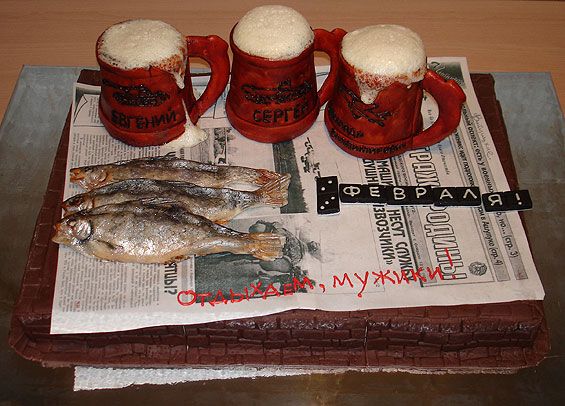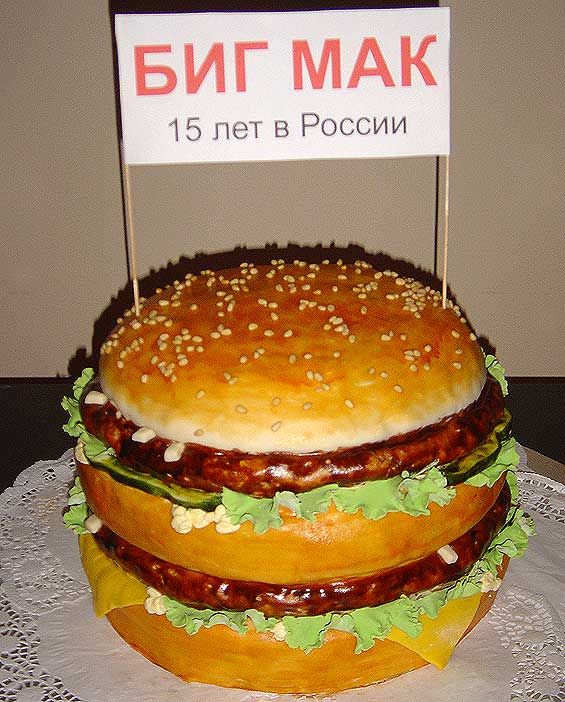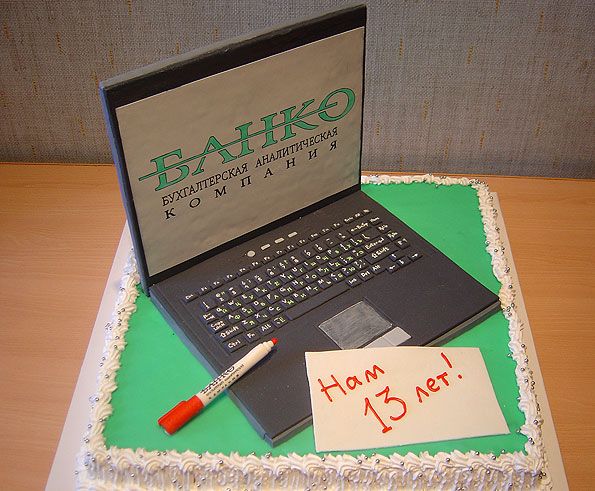 Translator Vova Khavkin offers the following original LR translation by pundit Yevegeny Kiselov (pictured) from the virtual pages of Gazeta.ru concerning the "Other Russia" protesters:
Translator Vova Khavkin offers the following original LR translation by pundit Yevegeny Kiselov (pictured) from the virtual pages of Gazeta.ru concerning the "Other Russia" protesters:
Premonition of GKChP-2*
Yevgeniy Kiselev
April 18, 2007
Gazeta.ru
Why did the authorities, after all, stage an OMON [stormtrooper] street theatre in downtown Moscow on Saturday, 14 April, then duplicated it in Piter one day later? Why did they corral to capital city’s Pushkin Square thousands of out-of-town goon squad enforcers who went berserk and unleashed their nightsticks upon random old ladies, grabbing each and everyone in sight—women, children, and passers-by who had no intention of either marching, or holding meetings, or protesting but simply came to take a stroll downtown?
Why did President Putin need to have the newspapers—both here and in the West—splattered next day with reports about the “feats” of the stormtroopers? Does he need the foreign TV outlets (our own, thank God, are all under wraps) run endless coverage of the most vivid scenes from the “Dissenters’ March” in their newscasts? What is it with him—he enjoys it when spokesmen of the heads of the G8 states and governments publicly express their concern and demand an explanation?
Did the president seriously expect that proponents of the “Other Russia” were going to disrupt public peace, crush something, beat up somebody, turn over and burn cars? Would it have been easier to let them walk through the city peaceably, just as they had intended, have a meeting, and head home? Putin and his entourage would have been dealt a powerful argument to counter the accusations that they stifle democracy while the Kremlin propagandists could have cited the march as an example of how scanty the ranks of the opposition were.
Perhaps all that happened there was in spite of the president’s will? Oh no, this is rather unlikely! Personally I have no doubt that Putin was kept apprised of the events as they were unfolding. Firstly, to corral so many stormtroopers from so many regions, to have a show of force in the center of the capital, two steps away from the Kremlin—without the president knowing this? I don’t believe this. No [Mayor] Luzhkov would ever dare to do this.
Secondly, thanks to former Italian Prime Minister Berlusconi who was hosted by his friend in Piter last Saturday and whose words were quoted by Italian newspapers, Putin was talking on the phone to the Minister of the Interior the whole time.
So why then was all this necessary? I am asking myself and the people around me for umpteenth time. It seems to defy rational explanation. Here, e.g., what Maxim Reznik, head of the Piter Yabloko [party] chapter says: “Irrational fear, irrational anger, and irrational aggression beget irrational actions. This is exactly how the crazed-up Russian [power] vertical smashed by the authorities does look like.”
So what is this, is it the very same case I described in my previous column: In order to comprehend the actions taken by the authorities one needs a psychoanalyst rather than a political scientist. Indeed, one can certainly see the paranoia in the authorities’ actions. They themselves invented the “orange” threat bogeyman and did this so well, so convincingly, that they began to fear it themselves in all sincerity. Indeed, what if not one, two, or three hundred “Other Russia” sympathizers hit the streets but ten, twenty, or thirty thousand?
It seems to me that there is another psychological factor, a certain inferiority complex which the authorities just can’t get over with. Putin became president bypassing the school of body politics. He never took part in organizing meetings and demonstrations during the perestroika, did not advance to a leadership role in any political party that came into being at that time, and was not tempered in the crucible of numerous elections campaign in the late 80’s and early 90’s. Furthermore, the only election he had ever taken part in before—when one fine day the whole country learned his name—was that of St. Petersburg governor in 1996; Putin was head of [former mayor] Sobchak’s election campaign, and Sobchak lost.
Putin was a high-level functionary on a county scale who was noticed by the Kremlin when Yeltsin’s “family” began having doubts about the reliability of the former FSB chief, and they needed to find a replacement. They continued to watch him and finally made the decision: Here’s the person we need as a successor. He was picked by the members of the “family”: [Yeltsin’s daughter] Dyachenko, [former Yeltsin chief of staff] Valentin Yumashev, Roman Abramovich, [former Yeltsin chief of staff] Aleksandr Voloshin, and Boris Nikolayevich [Yeltsin] himself—they picked him out of a slate of several candidates that included [former prime minister] Sergey Stepashin and [former head of the Russian Rail Corporation] Nikolay Aksenenko, and perhaps somebody else. For example, I personally heard that [former prime minister] Mikhail Kasyanov—the then finance minister—was also on the “short list” of successor candidates. By the way, could this explain the intensity of the royal dislike for the former prime minister?
The rest was just the work of political operatives and big-gun heavy propaganda artillery: It was just the matter of weeks for television Channel One and Channel Two that had spun Vladimir Putin (let’s face it, he did have a good potential) and made him a popular leader on a national scale. It is not coincidental that having been erected on the pedestal of president with the help of television, Putin began his reign with “cleansing” the television medium.
Now all TV channels are meek and unconditionally subservient to Putin. None of them would dare reminding the president about the unpleasant events of the recent past. Yet one cannot get rid of the impression that no matter what, the president still can’t put the history of his political rise behind him, and this is the case of his constant diffidence.
Remember how Putin usually reacts in the rare instances when the journalists (all of them foreign) ask him difficult questions and even begin to argue? What’s important is not even the words—it’s the inflexion of irritation, hostile and at times—like in the famous case of circumcision which Putin promised to arrange for a French journalist—bordering on hysterical. And this is not surprising indeed: Putin totally lacks any experience of public polemics with his political opponents.
I think that core of his team should have the same type of complex, albeit to a larger extent—they found themselves on the pinnacle of power solely because of the following:
a) Being classmates at the Leningrad State University School of Law or the intelligence school;
b) Serving together at the Piter KGB structure;
c) Serving together at the USSR KGB station in the GDR;
d) Working together in the Piter city hall under Sobchak; and
e) Being member of the “Ozero” [Lake] cottage cooperative near St. Petersburg.
Look at these, how nontransparent and closed to the public they are. Of course, this is partly their professional spymaster trait that shows, but also their insecurity about the future and the fear of open political competition.
there is one more factor in the actions of the authorities—a psychological one: A cult of force which the president has clearly worshiped since his days of back alley youth in the ‘hood in Piter, the days when he had to earn respect and defend his territory and living space with fists. You can’t be weak, the weak are beaten up—how many times have we heard this [thought] slip by in Vladimir Putin’s speeches and public pronouncements. Hence his manic fear of compromise: God forbid some one thinks I am weak, that the government is weak. No negotiating with the enemy, never cutting any slack.
The veritable hysteria that was uncorked on the eve of the “Dissenters’ March”, including the matter of the U.S. State Department report on the status of human rights in the world, a report that has been issued on an annual basis for many years but elicited such a disproportionate response for the first time (merely few pages are devoted to Russia in this voluminous report—about the same number as are devoted to many other countries) brings to memory 1991.
Back in the spring [of ‘91] Gorbachev—who was also full of anxiety, unable to make his choice between a peaceful and a violent resolution of the problems at hand, swung towards to the siloviki [experts in violence] and for the first time spoke with irritation “about the so-called democrats” while the servile yes-men instantly picked the cue and went on squealing about the “agents of influence,” saying that Washington knew all along the names of those who would speak up and criticize the authorities from the podium of the congress of people’s deputies.
Back then the KGB arrested [Duma Deputy] Valeriya Novodvorskaya in a provocative matter and put her away in the “Lefortovo” [prison]. Then they started to expel the most liberal members of the Gorbachev circle from the CPSU ranks: Shevardnadze and Aleksandr Yakovlev—although there was no rational sense in these persecutions. I wouldn’t be surprised if something similar happened again in the near future. They won’t expel people from the ranks of “United Russia;” rather, they will fire them from the government [service].
This is when the onslaught against mass media began: The pulled the plug on the “Vzglyad” [View] program, then “Before and After Midnight”, then forced the best democratically minded journalists out of the Central TV newsroom (I won’t name the names because they have left the fold) and tried to change the management at the Izvestiya [newspaper].
Now again, a new wave is sweeping away what is left of the independent press: Bashkir president is threatening to sue the NTV [TV channel], the REN TV and “Russian News Service” management have been replaced: The commissars from state-run media dropped in, the prosecutor’s office is investigating the “Moscow Echo” because of the Limonov and Kasparov interviews while the FSB wants to stiffen the legislature in order to control the Web under the guise of the war on terror.
One cannot rule out that just like the future GKChP party was fledging its wings then, the “party of the third term” has gone on the new offensive now. If this is so, then it’s logical: It simply has to act according to the principle “The worse—the better.”
The savage breakup of a peaceful demonstration in downtown Moscow is a sure step towards “Lukashekaization” of Putin. Sic the stormtroopers on the opposition a couple of more times and you can safely forget about loyalty to the Constitution and the unwillingness to sour relations with the West. The West, they say, will never forgive this anyway, and as for the Constitution, why not amend it if we are violating it anyway?
It looks like this: While in 1999 struggle against Chechen terrorists was the main thrust of the Kremlin’s election campaign, and in 2003—the struggle against the oligarchs, today during the upcoming election campaign next fall the external threat may become the main theme.
Anything would do in such a case: Both the State Department report and the Jackson-Vanick amendment which the U.S. Congress can’t get around to repealing, and the European Court where some rulings not favorable to Russia are bound to be made, and PACE where Moscow will be continually castigated, and the WTO which just would not admit Russia, and the U.S. missiles in Poland: The enemy is at the doorstep, and the fifth column inside is ready to throw open the door. Hence—we are just a step away from a new version of GKChP. I hope every one remembers how the last affair ended.
A premonition of GKChP-2 is not the only outcome of recent events. There are other feelings: It seems that the opposition—in a broad sense of the word—is coming into motion. Many people started saying all at once that the sympathies of the rank-and-file members of “Yabloko”, SPS [Union of Rightist Forces], and even KPRF [RF Communist Party] began to gravitate towards the “Other Russia.” The longer these parties’ leaders play a game called “we part way with the radicals” forced upon them by the Kremlin, the faster this process will evolve.
And what’s your word?
______________
*GKChP—Sate Committee on the State of Emergency, a provisional government that overthrew President Gorbachev in August 1991 and collapsed three days later









































